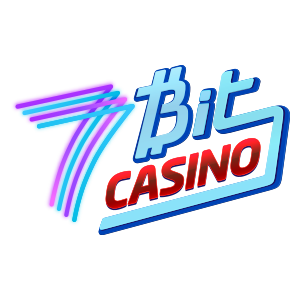Do You Have to Pay Tax On Your Casino Winnings in Canada

Table of contents
When you set out to play slots or other casino games at the prestigious online casinos in Canada, the last thing on your mind would be the taxes accrued by such gambling winnings. Even when it comes to betting on a football match or your favourite cricket team, gambling tax is quite a legitimate thing and could make your life a misery if you fail to understand its basic ins and outs.
It is absolutely essential for you to understand the fundamental complications that can arise from not understanding how Canadian citizens must pay taxes even if the money earned belongs to casino winnings. This is especially true of casinos in Canada which have no wagering requirement criteria.
This article talks about all the basic information when it comes to understanding whether in Canada, gambling winnings are taxable business income or not. Remember that every scenario is unique when it comes to gambling tax in Canada. Hence, keeping a lawyer informed about your casino winnings is a practical decision.
Regional Tax Rules on Winnings
Canada is one of the largest countries in the world. Even though the criminal code in Canada legalised gambling in land based casinos in 1969, online gambling in Canada is still not legal. However, all Canadian players are allowed to play online casino games in offshore casinos most of which are legally licensed and registered under the Kahnawake reserve.
Since Canada is such a huge territory, the tax rules on casino winnings differ according to region. Apart from the region, the other factors taken into account for tax winnings calculation include age restriction, availability of online casino games and so on. Tax rates vary according to where you perform your gambling activities. As a Canadian, if you gamble in online casinos that are based in the US, then you have to pay taxes of 30% on your casino winnings if any.
Remember to check the amount that you might have to pay as taxes can be equal to even half of your casino winnings. In the US, you need to report your gambling winnings. When you ask for a withdrawal at the ‘Cashier' section, the taxes get deducted, right then, right there. This is helpful for those Canadian gamblers who do not know how to calculate the amount of money they need to pay as casino taxes.
Since gambling is not a steady source of income for any Canadian casino enthusiast, taxing it is not considered to be fair by the Canadian government. Therefore, you do not have to pay taxes on gambling activities such as sports betting, horse racing, lottery winnings and so on, if you play in Canada. Do remember, however, that it is essential to file an income tax T5 form if you earn any kind of interest whatsoever from your casino rewards. If you do not pay taxes on interests connected to your casino winnings, then you could be legally prosecuted and fined.
Gambling Type: Recreational or Professional
When it comes to calculating taxations on gambling winnings, the type of gambling practised by an individual matter. In the case of recreational gambling, Canada is pretty lenient. If you decide to play online at a couple of casinos or engage in some physical casino fun, then Canadian laws do not want to pour water over your crisp plans. There is no need to fill out any form or engage a lawyer to find out if you have missed any tax payments. However, be sure to check the gambling tax applicable to players in different regions of Canada.
The stats regarding professional gamblers is a bit different. Being a full time gambling practitioner (in online casinos or in offline casinos) means that you eke out a living from gambling. This indicates that gambling is your primary occupation. Under these circumstances, all professional gamblers which include professional poker players, blackjack players in the professional sense and more, belong to the freelance business criteria. This makes professional gambling taxable in Canada.
However, no need to be disheartened just yet. You might have to file income tax returns when it comes to professional gambling, but the Canada Revenue Agency is fairly slow when it comes to assessing and processing professional gamblers. Even though professional gambling as a business is taxable in Canada, gambling is an unstable activity leading to massive losses over and over again. Forcibly taxing professional players will therefore lead to a domino effect in the financial system, leading to financial upheaval. This situation, however, does not indicate that you should stop paying taxes under any circumstances.
Are Gambling Losses Tax-Deductible?
If the Income Tax Act of Canada is to be believed, only professional gamblers are treated as freelance businesses and required to submit their income tax returns. Remember that it is important to note the line which separates a casual gambling enthusiast from a professional gambler. Take a look at the official website of the Canadian Revenue Authority for more information regarding this distinction. Being a professional gambler is not all about taxed losses though. If you lose a significant amount in a professional gambling tournament, then you can try to avoid those losses using tax deductible techniques.
If you play just for the fun value and some easy money, then there will be losses that are not tax deductible. For professional gamblers, however, there is the option of a tax refund. Since professionals function as freelance businesses, the tax refund can easily cover game-related expenses such as transport, lodgings, food and so on.
Recreational or Professional Gambling
In Canada, professional gambling is taxed as a freelance business, unlike recreational gambling activities. Professional gambling also allows you to classify certain gambling losses as tax deductible, thereby saving your money in the process.
Professional gambling enthusiasts are also allowed to file for tax refunds on gambling tournament related expenses.
How Does Gambling Work With Income Tax?
The Canadian Income Tax Act describes a professional gambler as someone whose major and primary occupation is gambling and the tournaments that come along with it. In Canada, pro players are considered to be freelancers and thus have to file income tax returns along with the rest of the population who get salaries.
In the case of casino enthusiasts who play just for the sake of fun and some easy real money, the Income Act is not valid. The primary reason behind this decision is that Canadians who play for fun are placing wagers for entertainment and do not get a stable salary at the end of every gaming round. If you earn interest on your casino winnings, however, you must at all costs declare your profits on a T5 income tax form. There is no income tax exemption in this case. Under trying circumstances, it is always better to look for a lawyer who can provide legal advice well.
Is Taxation Different for Online and Offline Gambling?
No, all gambling based income that is taxable in Canada is the same for online and offline gambling hubs. Professional gamblers must file their income tax returns while casual enthusiasts can get away with no tax entertainment whether online or offline.
Conclusion
Canadian gambling is not a legal hurdle thanks to the clear cut line that differentiates between professional gamblers who must pay taxes on casino winnings as their only source of income and casual gamblers whose gambling winnings are not taxable unless they derive interests from them.











